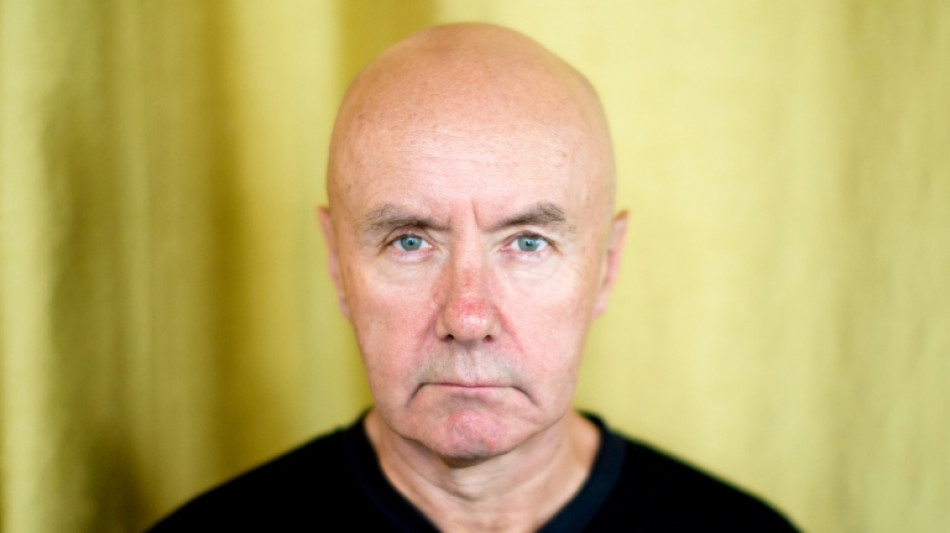
-
 Mikaela Shiffrin, skiing's greatest back on top of the world
Mikaela Shiffrin, skiing's greatest back on top of the world
-
Denmark's King Frederik X arrives in Greenland in show of support
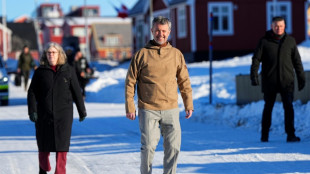
-
 Gabon cuts off Facebook, TikTok amid teachers' strike
Gabon cuts off Facebook, TikTok amid teachers' strike
-
Ukraine's officials to boycott Paralympics over Russian flag decision

-
 Notorious Courbet painting goes on show in Vienna
Notorious Courbet painting goes on show in Vienna
-
In reversal, US agrees to review new Moderna flu shot

-
 Glencore still open to 'mega-miner' deal after Rio collapse
Glencore still open to 'mega-miner' deal after Rio collapse
-
Shiffrin finally strikes Olympic gold, China win first title

-
 Russian era ends at abandoned launchpad in South American jungle
Russian era ends at abandoned launchpad in South American jungle
-
'Utterly absurd': Kosovo ex-president denies war crimes as trial closes
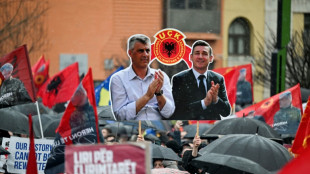
-
 Turkey to give cash for soap TV series that boost national image
Turkey to give cash for soap TV series that boost national image
-
Man missing in floods as France hit by record 35 days of rain

-
 Our goal? Win World Cup, says Shadab as Pakistan into Super Eights
Our goal? Win World Cup, says Shadab as Pakistan into Super Eights
-
Birthday boy Su wins China's first gold of Milan-Cortina Olympics

-
 India opener Abhishek out for third straight duck at T20 World Cup
India opener Abhishek out for third straight duck at T20 World Cup
-
Biles consoles Malinin after 'heartbreaking' Olympic collapse

-
 US star Shiffrin wins Olympic slalom gold
US star Shiffrin wins Olympic slalom gold
-
Ukraine says 'outrageous' to allow Russian Paralympians to compete under own flag

-
 Liverpool captain Van Dijk hails Szoboszlai as future 'leader'
Liverpool captain Van Dijk hails Szoboszlai as future 'leader'
-
UEFA to investigate alleged racist abuse of Vinicius

-
 'It's my story': US skater Liu looking to upset Sakamoto and Japanese
'It's my story': US skater Liu looking to upset Sakamoto and Japanese
-
Cricket: T20 World Cup Super Eights explained

-
 Rennes turn to Haise to replace Beye as coach
Rennes turn to Haise to replace Beye as coach
-
Ton-up Farhan helps Pakistan seal Super Eight spot with Namibia rout

-
 Norway's Klaebo extends all-time Winter Olympics golds record to 10
Norway's Klaebo extends all-time Winter Olympics golds record to 10
-
Spanish police arrest hacker who booked luxury hotels for one cent

-
 Russia, Cuba slam US in Moscow show of solidarity
Russia, Cuba slam US in Moscow show of solidarity
-
Germany's Merz casts doubt on European fighter jet plan

-
 Snowboarder Su Yiming wins China's first gold of Milan-Cortina Olympics
Snowboarder Su Yiming wins China's first gold of Milan-Cortina Olympics
-
How Real Madrid's Vinicius became repeated target of racist abuse

-
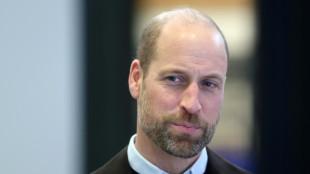 Prince William opens up on mental health, understanding his 'emotions'
Prince William opens up on mental health, understanding his 'emotions'
-
Farhan ton takes Pakistan to 199-3 in must-win T20 World Cup match

-
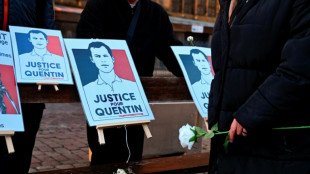 French hard left reports 'bomb threat' after far-right activist killing
French hard left reports 'bomb threat' after far-right activist killing
-
Gabon cuts off Facebook, TikTok after protests

-
 India celebrates birth of cheetah cubs to boost reintroduction bid
India celebrates birth of cheetah cubs to boost reintroduction bid
-
Greek taxis kick off two-day strike against private operators

-
 Turkey MPs back moves to 'reintegrate' former PKK fighters
Turkey MPs back moves to 'reintegrate' former PKK fighters
-
Sri Lanka unfazed by England whitewash ahead of Super Eights clash

-
 Shiffrin primed for Olympic gold after rapid first slalom run
Shiffrin primed for Olympic gold after rapid first slalom run
-
Dog gives Olympics organisers paws for thought

-
 South Africa fire Super Eights warning to India with UAE romp
South Africa fire Super Eights warning to India with UAE romp
-
Ukraine war talks resume in Geneva after 'tense' first day

-
 US tech giant Nvidia announces India deals at AI summit
US tech giant Nvidia announces India deals at AI summit
-
US comedian Colbert says broadcaster spiked Democrat interview over Trump fears

-
 Kenyan activist fears for life after police bug phone
Kenyan activist fears for life after police bug phone
-
Isabelle Huppert sinks teeth into Austrian vampire saga

-
 Peru to elect interim leader after graft scandal ousts president
Peru to elect interim leader after graft scandal ousts president
-
French designer threads a path in London fashion week

-
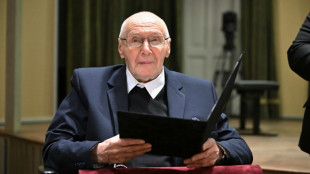 Hungarian star composer Kurtag celebrates 100th birthday with new opera
Hungarian star composer Kurtag celebrates 100th birthday with new opera
-
Congolese rumba, music caught between neglect and nostalgia


Irvine Welsh takes aim at 'brain atrophying' tech ahead of new Trainspotting sequel
Scottish author Irvine Welsh on Friday described the new sequel to his cult novel "Trainspotting" as an antidote to a world full of "hate and poison", as he took aim at social media, the internet and AI.
"Men in Love", the latest in a series of sequels, follows the same characters -- Renton, Spud, Sick Boy and Begbie -- as they experience the heyday of rave culture in the late 1980s and early 1990s.
Welsh's novel was turned into the wildly successful 1996 hit film of the same name directed by Danny Boyle and starring Ewan McGregor.
The black comedy drama featured a group of heroin addicts living in an economically-depressed part of Edinburgh.
"We're living in a world that seems to be so full of hate and poison. Now it's time I kind of focus more on love as a kind of antidote to all that," Welsh said.
Although his novel was published over 30 years ago, there were many parallels with the world today, he added.
The 1980s demise of much heavy industry such as shipbuilding in the Leith area of Edinburgh heralded a new world for some "without paid work".
"Now we're all in that position. We don't know how long we'll have paid work, if we do have it, because our economy, our society, is in just a long form revolutionary transformation," he told BBC radio.
"It's a big, contentious, messy revolution. There's lots to play for, but there's some very dystopian tendencies within it," he added.
Despite the problems faced by earlier generations, Welsh said he detected less optimism now.
- 'Natural stupidity' -
"I think we're just a bit more scared... I think we've got this existential threat on the horizon, basically, of species extinction... through kind of wars and diseases and famines and climate change and no economic means for younger people to make their way in the world as we had," he said.
Welsh also took aim at artificial intelligence (AI), an internet appropriated by big corporations and a social media culture marred by "vitriolic pile-ons".
He said the internet had stopped people from thinking and had created a "controlling environment" in which "we just take instruction".
"We've got artificial intelligence on one side, and we've got a kind of natural stupidity on another side. We just become these dumbed down machines that are taking instruction.
"And when you get machines thinking for you, your brain just atrophies."
He said he hoped that people's current addiction to mobile phones would be a phase that runs its course.
"You look down the street and you see people with a phone stuck to their face.
"Hopefully, if we survive the next 50 years, that's going to look as strange on film as... people chain smoking cigarettes did back in the 80s," he added.
"Men in Love" is due to be published by Penguin on July 24.
O.Norris--AMWN
